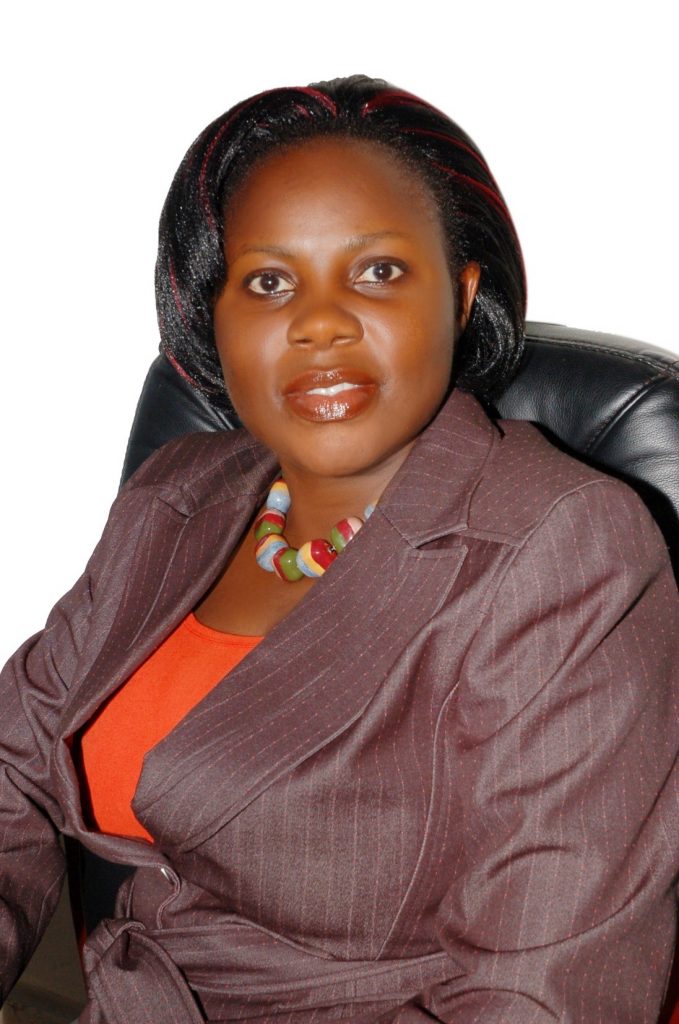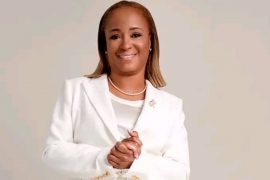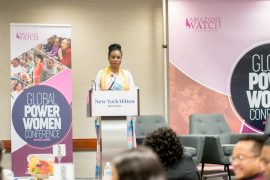Often times, women are relegated to procreative and domestic accomplishments. In a system where women are empowered, they are fully involved in all areas and sectors, building solid economies and generally improving the quality of life. In this exclusive interview with Amazons Watch Magazine, Veronicah Gladys Namagembe, Managing Director and CEO Pride Microfinance Limited (MDI), speaks on some of the strategies her organization has put in place to empower the female gender.
- Among your career goals is the passion to give back by coordinating mentoring and coaching programs towards continuity and succession planning. How will you rate the success of these programs?
One of the Key Performance Indicators for our mentorship and coaching programmes is the number of mentees and coaches that are growing through the ranks, both in their social and career lives. I am proud to see 4 CEOs and 21 Senior Managers in the Ugandan Financial Institutions whom I have mentored or coached climb the ladder under my watch. The ability to maintain a consistent coaching approach at all levels only enhances our competence as leaders to focusing on doing good deeds. As the CEO of Pride Microfinance, I have registered quite some successes with attention to growing careers from within the institution at 99.8% through hands on coaching and mentoring.
- It has been observed that women make up a large proportion of beneficiaries of the services/packages offered by microfinance banks in Africa. Does this imply that the women in small businesses are better at what they do with adequate external support?
- By end of October 2018, Pride had 41% female borrowers, taking up 33% of the loan portfolio with Portfolio at Risk (1 day past due) at 3.6% compared to 4.7% for the male counterparts. This is because women are generally diligent, committed, keep their word and family oriented.
- Pride’s Board of Directors is made up of 57% females, while Senior Management has 30% women and 43% of the work force are women. In terms of their performance, 50.6% score Good and above, compared to the male at 49.4%.
- In 2012, the average return on assets (ROA) of publicly listed companies without female representation was 0.99 compared with 3.03 for companies with at least one woman on the board. This resonates well with Pride, which is ranked number 1 with the best return on asset averaging at 7.2% in the past 7 years among all regulated financial institutions in Uganda with focus on serving people at the base of the pyramid.
- Nevertheless, we still have quite some strides to pursue. In my day today, I see cases of women being put under duress to guarantee credit facilities, loans going bad because the husband sold off the harvest and did not bring any money home and at worst violence for refusing to guarantee a husband’s credit facility. It is not yet time to sit back and relax but rather maintain the momentum since empowerment of the woman, empowers the whole nation.
- I believe that remarkable achievements have been realized in the advancement of women empowerment; however more needs to be done especially in the 7 spheres of influence i.e business, government, media, arts and entertainment, education, family and religion. I strongly believe that if we want women to participate fully in financial inclusion and access, we must put men into the picture. By focusing on only women in isolation will take us to the wilderness close to the Promised Land but not in Canaan itself. This is because women live in communities with families and with men.
- In your opinion, what are some policies that can be put in place to boost small and medium-scale enterprises run by women in Uganda?
- Concessional lending schemes and loan portfolio guarantees for women led SMEs
- Institute Tax holidays for women led SMEs in Uganda.
- Focus efforts to support women in Agriculture; where over 60% of the farming population are women.
- Preferential schemes creation for Women led SMEs to offer services to Government, the largest spender.
- Prioritization of Incubation for women led SME startups.
- Capital Financing Grants for the SMEs managed by credible financial institutions and subject to competent screening.
- Centralized Database for enrollment of SMEs and linkage of the same to Financial Institutions and Other Entities that may offer or require services.
- Training Programs led by the private sector, Government and Development partners.
- Pride Microfinance Bank plays a vital role in Uganda’s economy by creating packages that advance local businesses. What are some of the challenges the bank has faced in achieving its objectives?
- High cost of doing business and scaling to SMEs, it is quite expensive to run brick and mortar branches; besides the market dynamics; high inflation and market interest rates.
- Microfinance business reputation was damaged by unregulated Microfinance Institutions (MFI) who fleeced quite a number of people and this affected market confidence in genuine regulated MDIs who are serving Ugandans at the base of the pyramid.
- Regulatory requirements and pressure continue to increase and we need to devote a large part of our budget on being compliant, and on building systems and processes not only limited to expensive robust core banking system to keep up with the escalating requirements.
- The low levels of marginal propensity to save: Our target market still has a low penetration rate when it comes to savings. This has resulted into high account dormancy ratios.
- Increasing competition from unregulated financial technology companies (FINTECHS) who are using software to provide financial services.
- Retaining talent is critical as staff is always on the move looking for greener pastures.
- Data security, cyber security and third-party risks require specific action at all times.
- Staying engaged with customers is becoming more and more difficult with the advancement in digitalization; moreover it’s the key for being connected to customers as a means of staying relevant and making new business lines.
- What will be your advice to young women who aspire to climb the executive ladder in the financial circles?
- You cannot have everything (postgraduate education, marriage, children and career advancement) at once. Phase your life goals realistically.
- Make a difference in people’s lives and the results like profits will be the outcome.
- Take care of your life. Drink lots of water, fruits and vegetables. Smile and laugh more and make your body active. Learn to exercise your pelvic bones and body muscles. Remember eat, sleep and exercise.
- Start saving for retirement now, not later. Keep an “emergency fund”, stop impulse shopping and don’t invest in anything you don’t understand.
- Don’t spend your time with people who do not treat you well. Learn to be good to the people you care about.
- Be kind to yourself, respect yourself: Be a little selfish and do something for yourself every day, something different once a month and something spectacular every year.
- Give back to people, society and community by volunteering for projects, giving speeches, writing blogs, and taking an active part in professional organizations. Network within and outside your industry.
- Find mentors and sponsors who will guide and help promote you.
- Always think outside the box or the building.
- Genuinely forgive since it’s for the person doing the forgiving. It has absolutely nothing to do with the person being forgiven. For those of you still holding a grudge — let it go. You’ll add years of happiness to your life.
- Believe in yourself and take that first step and lift your own ladder for career advancement and growth.
- In recent times, women protested several injustices from workplace marginalization to assaults of different kinds. How best do you think the rights of women can be protected?
In my opinion, what we see at the work place reflects our family values. The ability to inculcate values of integrity, gender respect, and equal opportunity come right from our homes; our children and the society will be the determinant factor in preventing / minimizing the several injustices. At the work place, it is not too late, we need to develop and nature values that instill respect at the workplace. We should have zero tolerance to such practices and should live and be seen to be a community of moral upright people and embracing diversity.
- What are some of the hard lessons you learnt in your career path that structured your working principles?
- Openness, humility and integrity are key to me as a leader.
- Self-regulation, time keeping and leading by example while walking the talk.
- Being accountable and owning up.
- Never keep a grudge.
- Reading widely even on matters that do not concern me.
- Learning from my mistakes and mistakes of others.
- Be fast, furious and at the same time flexible.
- Be a transformational leader with focus on influence, initiative, insights, integrity and impact.
- Derive your decisions based on common sense and data analytics.
- Treat people the way you would want to be treated.
- Invest adequate time in hiring the right people in the right positions.
- Look for complimentary skills in all the team members.
- Happy staff equals happy customers.
QUOTE: I believe that remarkable achievements have been realized in the advancement of women empowerment; however more needs to be done especially in the 7 spheres of influence i.e business, government, media, arts and entertainment, education, family and religion.




